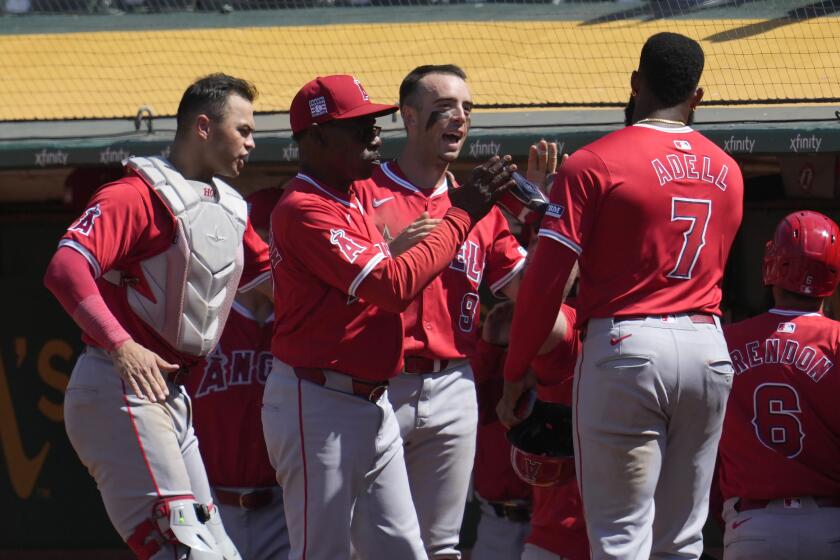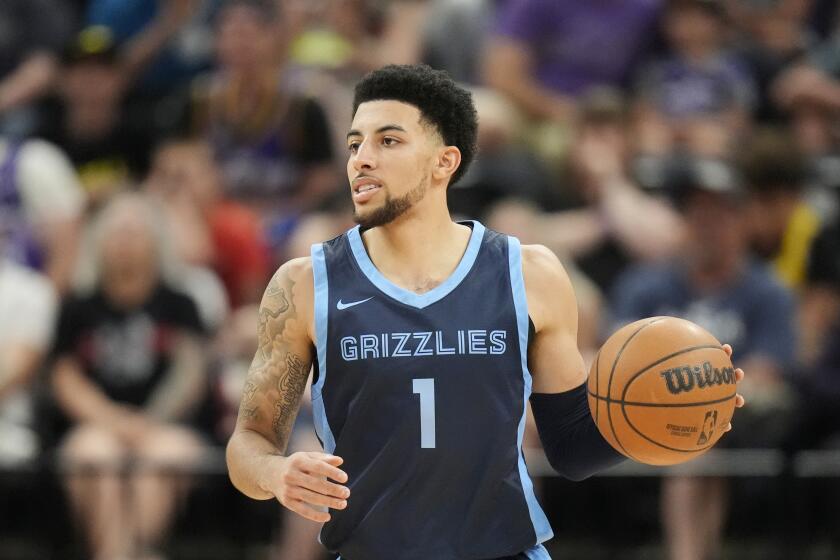Incentive Not Such a Bad Idea
You would think, when you asked a champion golfer what the most memorable shot or victory was in his career, he would come up with the wedge shot that won the U.S. Open, the putt that earned him a Masters jacket or the five-iron across the Firth of Forth that locked up the British Open.
Just as you might expect a ballplayer to recall the homer that won the pennant or the tennis player the ace that gave him Wimbledon.
Raymond Floyd is one of the icons of golf. He has won two PGAs, a Masters, a U.S. Open and 20 other tournaments.
But when I asked him to recall the sweetest win or the greatest shot, Raymond didn’t hesitate.
“You remember the shots that won the Ryder Cup,” he said instantly. “They’re the ones indelible in your mind, the ones which give you the greatest satisfaction.
“Why?” he asks, giving you that famous Floyd four-fairway stare. (“He stares the ball into the hole,” Lanny Wadkins once said.) “Because you’re playing for your country. You’re playing for your teammates. The pressure is greatest. You want to come through.”
Floyd does not find it at all Strange that the Curtis by that name should define himself by a disastrous Ryder Cup at Oak Hill this year, rather than the consecutive U.S. Opens he won in 1988 and ’89. Bernhard Langer won two Masters but will probably always remember--and rue--the putt he missed at Kiawah Island in 1991, which would have kept the Ryder Cup for Europe.
It set me to thinking of the fundamental differences between golf and other sports. First of all, golf is an individual sport, so the sensation of playing as a team member must give additional incentive, responsibility to someone other than oneself. Second, other sports do not seem to betray much interest in representing the country. Tennis players are notorious for ducking the Davis Cup. Some members of the basketball Dream Team considered the Olympics an unwarranted interruption of their postseason golf outings. Even collegiate basketball players have snubbed the Olympics.
Golf is not on the same page with the rest of sports, anyway. Consider, first, that, with a few exceptions, these guys make only what they earn. In fact, in antiquity, they even used to play only for their own money, the fees they paid to play.
You scan the sports sheets these days and you see where a basketball player is jumping his team because an $80-million contract is not enough. He wants $130 million over the life of a contract. And a team gave him that. Before he has made even one jump shot for them. A Houston infielder is leaving his club because a $20-million contract is not enough for him.
Golfers don’t get wooed by these astronomical contracts. They pay to play. So, you start out each year not with $20 million in the bank but $50 in the hole. No matter who you are.
Golfers who rose above their fields used to be able to command appearance money. Sponsors wanted the drawing cards. Then, golf itself--in this country, at least--outlawed appearance money.
Golf survives by a different code. But you have to wonder why the golf ethic could not be applied to other sports.
Take baseball, for example. Why do you have to guarantee some banjo-hitting infielder or steel-gloved outfielder $7 million a year?
How about if you go 0 for 4, you don’t get paid? How about every time you make an error, you get docked? How about if a pitcher walks in the winning run, he takes a pay cut?
Golfers lose money when they foul up. Say they are coming to the 17th hole of the final round of a tournament in third place and eligible for third-place money of, say, $120,000 if he pars in.
But he slams the ball out of bounds. He’s docked two shots. The money goes down. Then, say, he hits the ball in the water. That costs more shots. And more money.
He limps up to 18 no longer eligible for third money. He has slipped to 18th or 20th. Instead of $120,000, the best he can hope for now is, say, $15,000. As Sam Snead once said to Ted Williams, “When we hit a foul ball, we have to go out and play it.”
Why shouldn’t a ballplayer live by his performance? Why not guarantee a team a certain payroll if it wins the pennant, less if it doesn’t? The Yankees paid out $54,889,849, highest in baseball, last season for a pack of underachievers. If a golfer throws away money for non-performance, why not baseball or football players? A quarterback could get $50,000 a touchdown. But if he throws an interception, like a golfer hitting out of bounds, his take should go down.
A running back’s take could be adjusted for fumbling on the goal line. Deion Sanders gets millions to break up passes and make interceptions. But what if Jerry Rice catches a touchdown pass in his zone? Shouldn’t that come out of his pocket? It would come out of Ray Floyd’s pocket if he missed a four-foot putt or otherwise flubbed a tournament.
A power forward misses a free throw that gives the other team the championship--and goes home in his Rolls-Royce. A golfer misses the cut--and goes home on the bus.
Raymond Floyd is here to promote his “Lexus Challenge,” a pro-celebrity tournament at the lush Citrus golf course, Dec. 13-16 to benefit ChildHelp USA, which aims at child abuse prevention.
That’s another thing golf does--play regularly for charitable causes. The last thing a golf player wants to do is tee it up with some 20-handicap auto dealer with a loop in his swing. But he does it. For sick or neglected kids, or to build hospitals or finance medical research. Maybe baseball should let the public suit up to play a pro-am baseball game for some worthwhile charity.
Albert Belle would love that.
More to Read
Go beyond the scoreboard
Get the latest on L.A.'s teams in the daily Sports Report newsletter.
You may occasionally receive promotional content from the Los Angeles Times.






